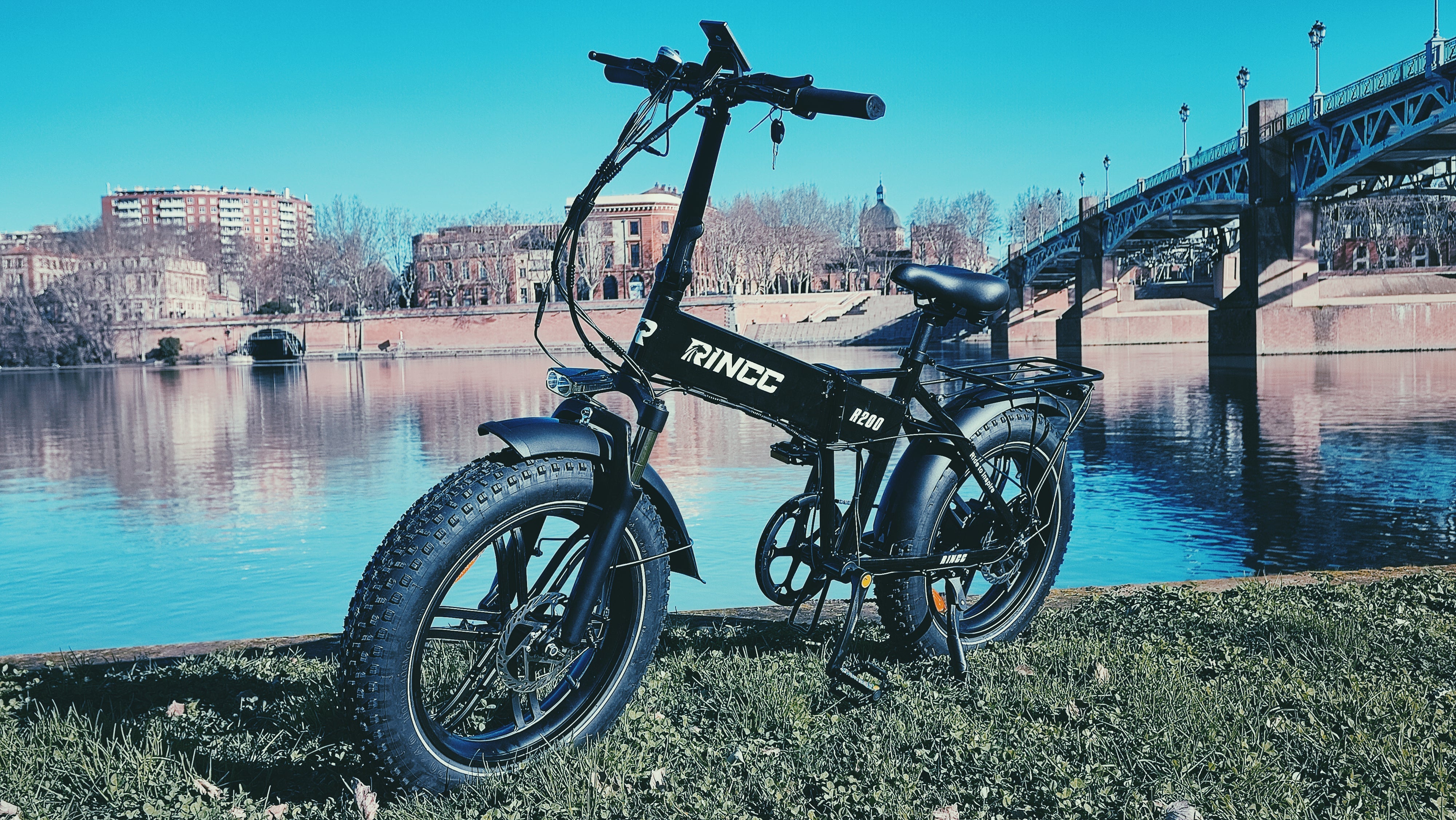Electric bikes (e-bikes) have rapidly gained popularity as a sustainable and cost-effective mode of transportation. For those with a deeper understanding of the industry, it's evident that e-bikes offer numerous advantages over traditional vehicles, especially when considering models like those from Rincc. This article delves into the financial implications, practical considerations, and health benefits of e-bikes, with a focus on Rincc's offerings.
Financial Implications: E-Bikes vs. Cars
Initial Investment and Operational Costs
While the upfront cost of a quality e-bike, such as Rincc's RN70 or R200, may seem substantial, it's considerably lower than purchasing a new car. Beyond the initial investment, the operational costs of e-bikes are minimal.
- Electricity Costs: Charging an e-bike battery is inexpensive. For instance, fully charging a 672Wh battery costs approximately $0.09, based on the U.S. average electricity rate of 13.19 cents per kWh. Even with daily charging, annual electricity expenses remain under $50.
- Maintenance: E-bikes have fewer moving parts than cars, leading to reduced maintenance costs. Regular upkeep typically involves tire replacements, brake adjustments, and occasional battery checks.
- Insurance and Registration: Unlike cars, e-bikes often don't require insurance or registration, eliminating these recurring expenses.
Comparative Analysis
Consider the annual fuel cost for a car averaging 25 miles per gallon with a 32-mile daily commute:
- Fuel Consumption: Approximately 1.28 gallons per day.
- Annual Fuel Cost: At $3.07 per gallon, this equates to around $706.10 annually.
In contrast, an e-bike's annual electricity cost for the same commute is under $50, showcasing significant savings.
Practical Considerations: Addressing Range and Cargo Concerns
Range Limitations and Solutions
Rincc's e-bikes are designed to cater to various commuting needs:
- RN70: Equipped with a 20Ah battery, it offers a range of 100–120 km in pedal-assist mode and 40–60 km in pure electric mode.
- R200: Features a 15Ah battery, providing 80–100 km in pedal-assist and 50–60 km in electric mode.
For longer commutes:
- Dual Batteries: Some models support dual-battery setups, effectively doubling the range.
- Portable Chargers: Keeping a charger at work or carrying a portable one allows for mid-day recharging.
- Public Transportation Integration: Folding models like the R200 can be combined with public transit, extending the effective commuting range.
Cargo Capacity
While e-bikes can't match cars in cargo capacity, Rincc offers solutions:
- Rear Racks and Panniers: Suitable for carrying laptops, groceries, or other daily essentials.
- Cargo E-Bikes: Designed with extended frames and reinforced structures to handle heavier loads, making them ideal for deliveries or transporting children.
Health and Environmental Benefits
Physical Health
Riding an e-bike provides moderate exercise, promoting cardiovascular health, improving muscle tone, and aiding in weight management. The pedal-assist feature allows riders to control the intensity, making it accessible for various fitness levels.
Mental Well-being
Commuting by e-bike reduces exposure to traffic congestion, leading to decreased stress levels. The outdoor experience and physical activity also contribute to improved mood and mental clarity.
Environmental Impact
E-bikes produce zero direct emissions, making them an eco-friendly alternative to cars. By replacing car trips with e-bike rides, individuals can significantly reduce their carbon footprint.
Conclusion: Are E-Bikes Worth It?
For those well-versed in the transportation industry, the advantages of e-bikes are clear:
- Cost Savings: Lower operational and maintenance costs compared to cars.
- Efficiency: Ideal for urban commuting, often reducing travel time during peak hours.
- Health Benefits: Promote physical activity and mental well-being.
- Environmental Responsibility: Contribute to reduced emissions and a smaller carbon footprint.
Rincc's range of e-bikes, including models like the RN70 and R200, are tailored to meet diverse commuting needs, offering reliability, efficiency, and sustainability. For more information and to explore their offerings, visit Rincc's official website.





Aktie:
How to Choose the Right Electric Bike?
What Are the Legal Requirements for Operating Electric Dirt Bikes on Public Roads?